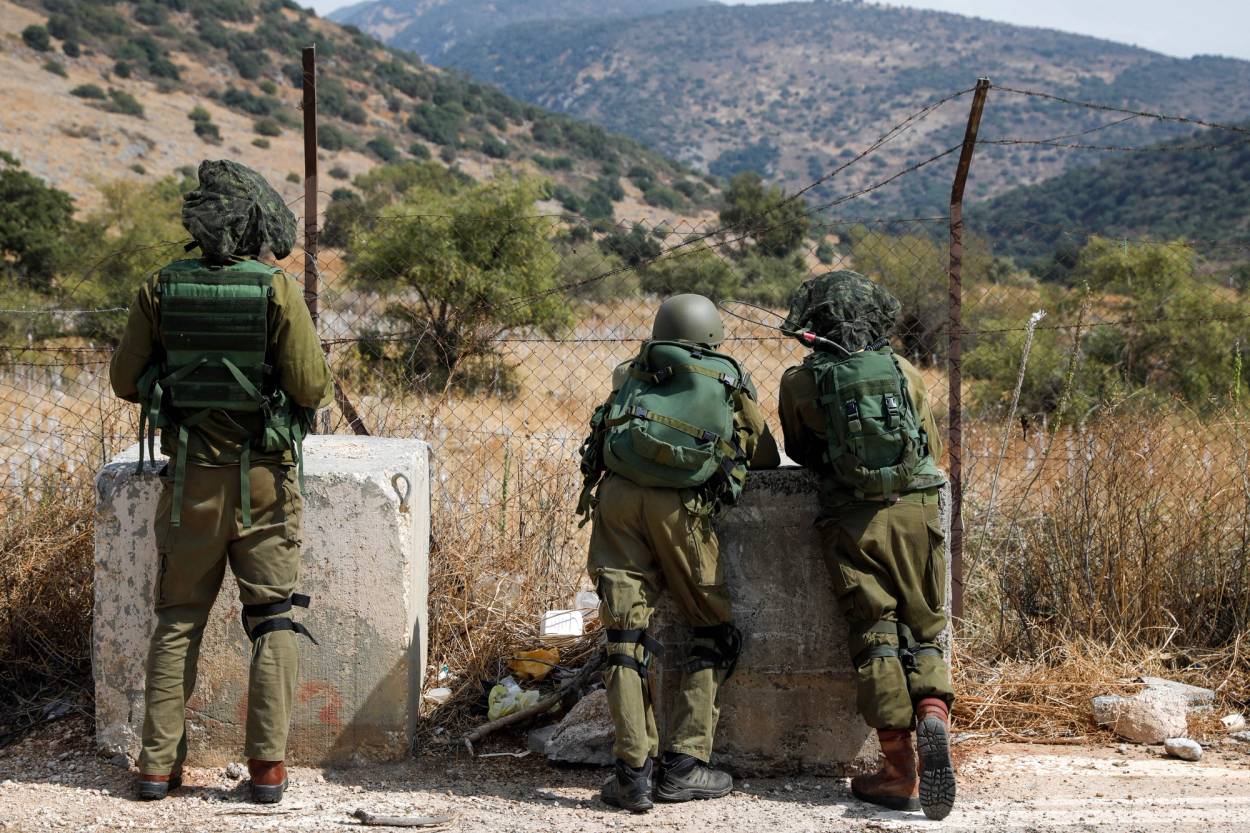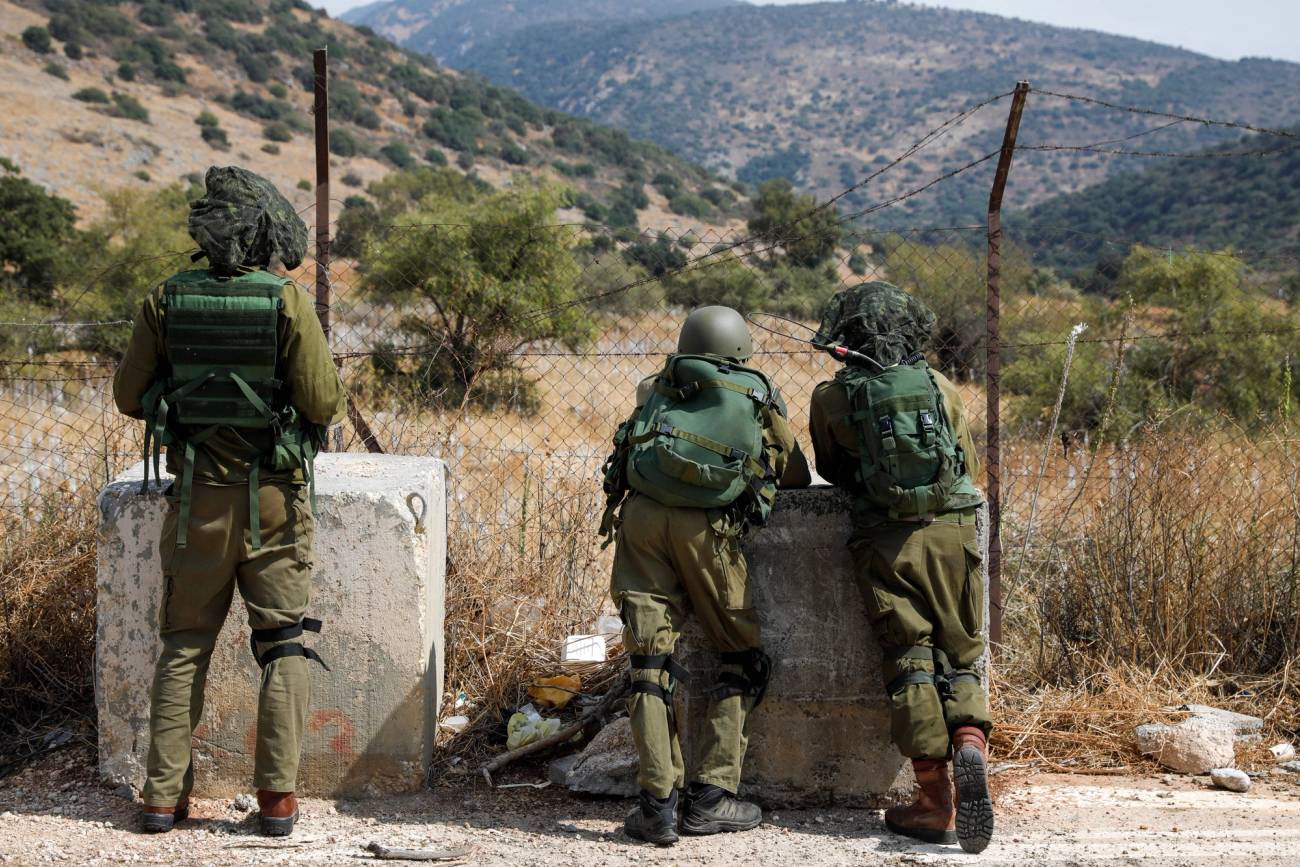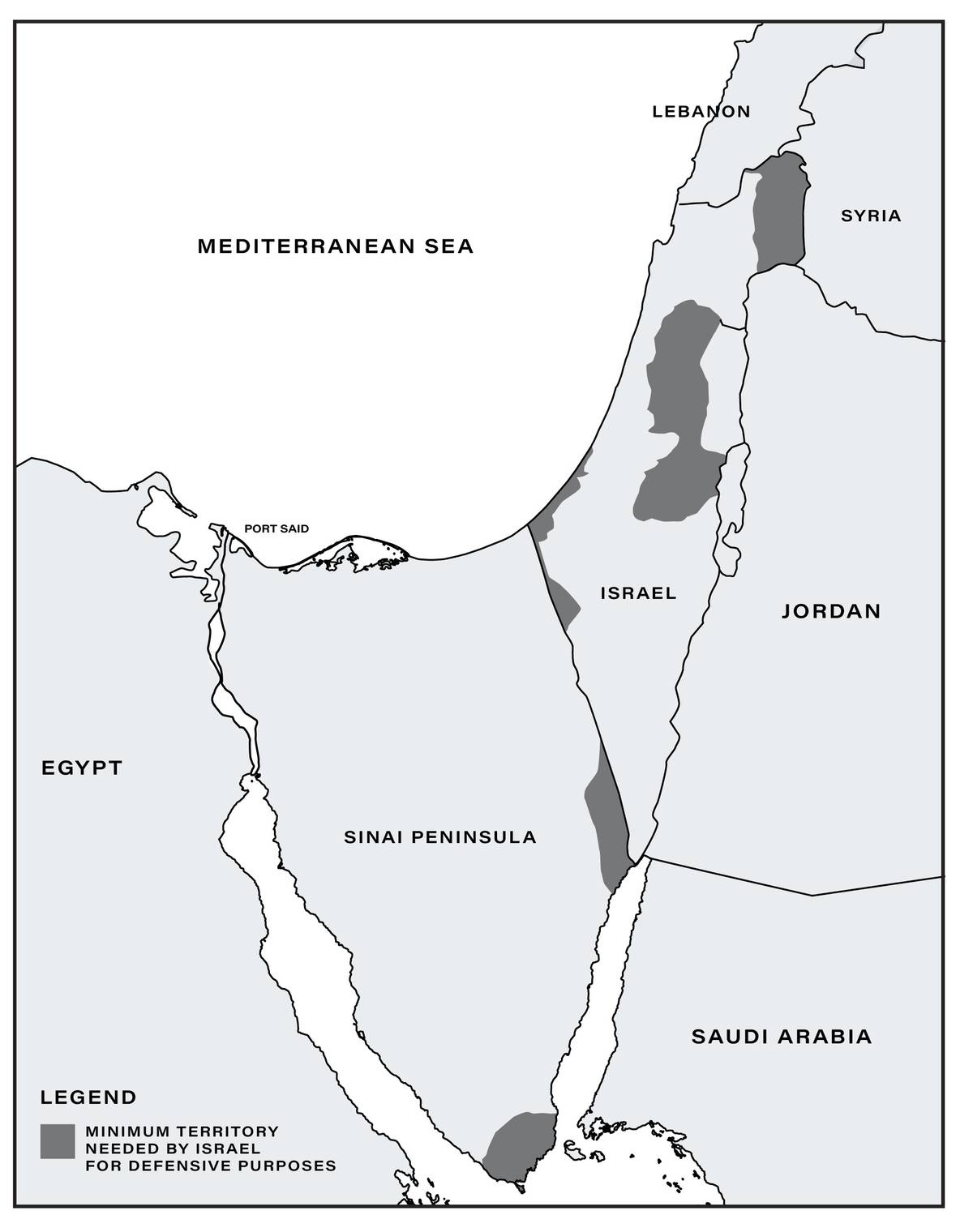The Last Lebanon War
To achieve victory, Israel must force territorial losses on its enemies

JALAA MAREY/AFP via Getty Images

JALAA MAREY/AFP via Getty Images

JALAA MAREY/AFP via Getty Images

JALAA MAREY/AFP via Getty Images
I have recently concluded a four-month stint on IDF reserve duty in the north, returning home with a bitter sense of missed opportunity. The unprecedented attack by Iran on Israel on April 13 has only heightened this feeling.
When war erupted on Oct. 7, I was called up for reserve duty in Har Dov, in northern Israel, where I served as a tactical officer stationed on the Lebanese border. It was a stark contrast to my usual work at Herut, the Center for Israeli Liberty, but it provided me with a broader perspective and deeper strategic insight. Engaging with tactical considerations inevitably prompts deeper reflection on strategic imperatives. From this experience, it became evident to me that while Israel pursues tactical objectives, it often lacks strategic foresight.
I’m not alone in harboring this sense of missed opportunity. My fellow reservists feel the same, as they’ve made clear in countless conversations. At the end of the day, we did not provide security to the residents of Israel’s northern communities. Hezbollah militants continue to operate with impunity, firing at will despite sustaining losses. It’s undeniable that we fell short of our mission.
I don’t make this statement lightly. Reserve duty demands significant sacrifice. Those of us who serve put our lives, families, and businesses on hold for months at a time. Returning home feeling like we’ve failed is deeply disheartening. Yet we cannot but recognize that while we’ve done our utmost to protect Israel’s north—no small feat amid simultaneous fighting in the south—we missed a rare opportunity for meaningful change. We also anticipate being called back to duty soon to finish the job.
The Litani must serve as Israel’s new border in the north. Hezbollah will only be deterred when it has suffered the loss of territory with little hope of reclaiming it.
Finishing the job in Lebanon, though, will be impossible as long as we refuse to be clear-eyed about the day after. I focus on Lebanon in this article, since Gaza seems to have reached a point of no return; Hamas will likely be disarmed one way or another, and we will keep “mowing the lawn,” just as we did with the PLO’s violent group, the Tanzim, taking routine actions to make sure it never recovers. However, despite the different situations in Gaza and Lebanon, I believe the source of the challenge they present is the same: the IDF’s long-standing belief that asymmetrical wars against terrorist organizations cannot be decisively won.
For decades, our military establishment has assumed that engagements with Hamas or Hezbollah would be brief, aiming merely to manage the situation rather than achieve outright victory. As a result, we moved from one operation to the next in Gaza, reluctant to disrupt the status quo, until forced to act by Hamas. Now, we face a critical decision: Either we perpetuate this pattern in Lebanon, or we fight the last Lebanon war, determined to achieve a decisive victory.
War against Hezbollah represents a substantial military engagement against an adversary with tactical capabilities far surpassing those of Hamas. At the onset of the Gaza war, Hamas boasted approximately 30,000 fighters and tens of thousands of rockets. In contrast, Hezbollah commands a force of 100,000 fighters and possesses at least 150,000 rockets, many of which have longer ranges and larger warheads than those in Hamas’ arsenal. Hezbollah is also considerably wealthier: While Hamas relies primarily on income derived from the Strip’s corrupt administration, supplemented by limited financial aid from Qatar, Hezbollah operates a lucrative drug trade and a number of illicit enterprises generating hundreds of millions of dollars yearly. It also receives substantial financial support from Iran.
Hezbollah’s significant military capabilities, though, are not our primary impediment to achieving victory. Our greatest challenge lies in grappling with the uncertainty of the aftermath should we succeed in defeating Hezbollah. Instead, we spend too much time and energy agonizing over the practicalities of postwar scenarios, such as managing the civilian population. While these are valid considerations, our emphasis should be on envisioning a future where we no longer face a conventional military threat on our borders. A decisive victory in Lebanon could potentially liberate Israel from existential threats, paving the way for economic prosperity and empowering us to address long-standing domestic challenges with newfound resources and focus.
Turning this vision into reality requires learning from our past mistakes in Lebanon. During my time stationed in Har Dov in recent months, I took the opportunity to study its history. I learned about Operation Cauldron 2, conducted in 1970 by the Barak Brigade with assistance from the Golani Brigade. Our forces successfully cleared six villages in southern Lebanon from terrorists. Remarkably, these are the very same villages where we continue to fight today.

Tablet
Subsequent efforts to combat terrorism in Lebanon followed, including Operation Litani in 1978, during which we advanced all the way to the Litani River before withdrawing two months later. In 1982, we achieved a significant victory in driving out our enemies entirely, only to welcome back Yasser Arafat a decade later. Each of these operations or wars resulted in nothing more than temporary, tactical takeovers. Lebanon suffered no permanent consequences for allowing terrorists to operate freely within its borders.
Our adversaries in Lebanon, much like those in Gaza, have demonstrated resilience in the face of bombing campaigns. War is never a pleasant experience, but history has repeatedly shown that whenever Israel concludes a military operation, our enemies declare victory regardless of the extent of the damage inflicted upon them. They will proudly stand amid the ruins and proclaim triumph, as victory for them lies in their survival to fight another day. Despite the destruction wrought upon their families and infrastructure, their sovereignty and territorial integrity remain intact.
To achieve a decisive victory over Hamas and Hezbollah, we must impose permanent consequences of the kind they fear most. At a minimum this includes destroying their military power and military infrastructure. More importantly, however, this must include a clear loss of sovereignty. For Gaza, this means becoming one vast Area B, with Israel exclusively in charge of security. For Lebanon, this means Hezbollah can no longer operate freely south of the Litani River. The Litani must serve as Israel’s new border in the north. Hezbollah will only be deterred when it has suffered the loss of territory with little hope of reclaiming it.
By shifting that Israeli border up to the Litani River, we will achieve a dual objective: First, we will establish a potent deterrent against Hezbollah, which has never faced territorial losses before. Second, the Litani River is a great topographical line that will allow us to defend our northern communities should Hezbollah rearm itself further north. To understand the significance of this buffer zone, try to envision the Yom Kippur War without control over the Golan Heights: Syrian divisions would have easily reached the Galilee on the war’s first day, jeopardizing Israel’s very existence. As it pertains to safeguarding Israel’s security interests, the strategic importance of the Litani line parallels that of the Golan Heights. Our wish to acquire this territory is not motivated by mystical or religious beliefs; rather, it is a pragmatic stance based on a sober analysis of the potential challenges Israel may encounter in the years ahead.
Following Iran’s attack on Israel earlier this month, we find ourselves in a challenging position. The Biden administration has made it abundantly clear that it is opposed to any retaliation against Iran. The likelihood of Israel gaining American support for any military action against Iran therefore is nil.
Israel is not without options, however. Iran’s failure to harm Israel despite launching hundreds of drones and missiles underscore the extent to which the greatest danger it poses to Israel is not through its ballistic capabilities but rather through its proxies that are directly on Israel’s borders. Of these proxies, none is as dangerous and well equipped as Hezbollah.
Absent international willingness to endorse direct military strikes against Iran, we must leverage international concerns about avoiding direct conflict with Tehran to impose a fait accompli in Lebanon, by pushing Hezbollah north of the Litani River and annexing the territory south of it. Notably, much of the population in this region has already been displaced due to Hezbollah’s military activities. Once Israel has established control, civilians uninvolved in terror activities can safely return to live there.
In terms of strategy, prioritizing the neutralization of Hezbollah holds greater significance than direct confrontation with Iran. While Iran’s arsenal consists of only a limited number of long-range missiles posing a threat to Israel, Hezbollah is positioned right on our northern border, equipped with over 150,000 rockets and missiles capable of inflicting serious damage. With its 100,000 well-trained combatants, Hezbollah poses the greatest Iranian threat we face. In truth, Hezbollah serves as an extension of the Iranian military. A decisive victory over Hezbollah needs to include both significant territorial losses providing Israel with a defensible border, and the complete degradation of their military capabilities. This will significantly diminish Iran’s capacity to threaten Israel, thus reshaping the regional power dynamics.
This time, I am hopeful that we will not miss this opportunity.
Amiad Cohen is the CEO of Herut Center, and the publisher of the Hebrew-language intellectual journal Hashiloach.